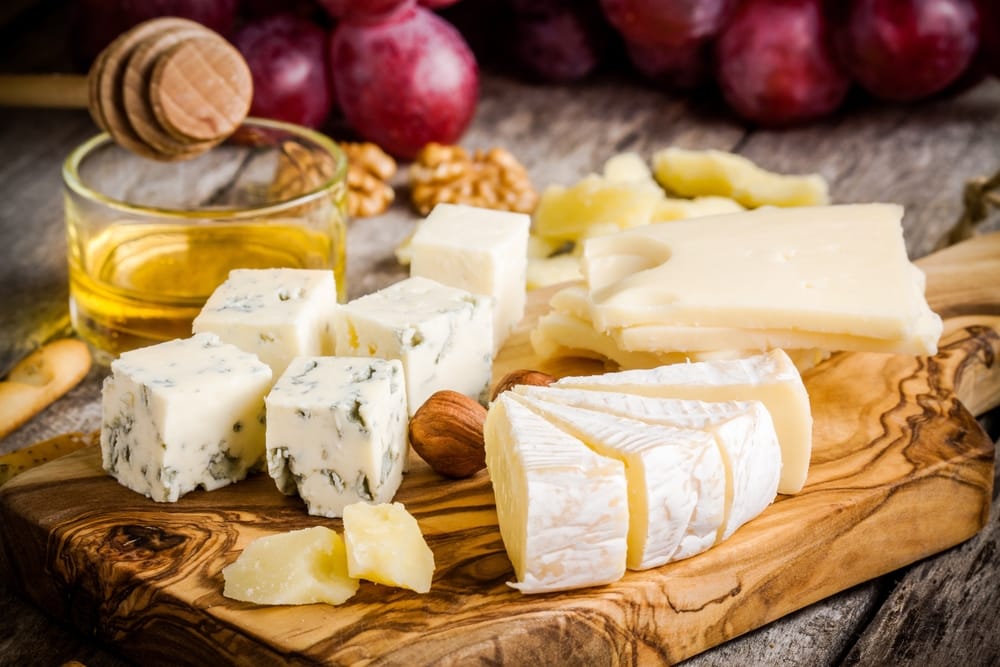
The origin and preparation methods for cheese can bring a wide variety of flavors to your recipe. So, if you want to replicate the taste of a particular dish, it is best to strictly follow the instructions and only use the type of cheese mentioned in the recipe. That way, it will be much easier to replicate the original flavor of the dish without having to worry about the consistency and texture variances.
Recently there have been many questions regarding Baby Swiss and Swiss cheese. If you’re also interested in the same food items, then the information mentioned below should paint a complete picture for you.
Baby Swiss vs Swiss
Baby Swiss
The biggest difference between baby Swiss and Swiss is that the baby Swiss is not aged for a longer time period. Because of this, this variant develops a sweeter flavor and will bring a smoother texture to your recipe. Most beginners prefer to use this variant in their recipe because of the creamier consistency. So, if you’re also looking for a similar type of cheese, then baby Swiss is the best option for you.
While many people believe that baby Swiss and Swiss are the same, the differences between price tags and flavor are quite apparent. It is true that the serving size of this cheese is smaller in the market, but that isn’t the only reason behind the name of baby Swiss cheese. The main factor of differentiation is the aging period which is significantly less in the case of this food item.
If you’re looking for a sweeter alternative to Swiss cheese within a similar price range, then baby Swiss is perfect for you. Aside from the enhanced sweetness and the creamier texture, this cheese variant is almost identical to Swiss cheese. So, you won’t feel any differences in the quality of the dish aside from a smoother consistency and sweeter flavor.
Overall, you can differentiate between Swiss cheese and baby Swiss cheese by texture and flavor. If you’re looking for something milder, then baby Swiss cheese is not a good option for you. You will clearly notice the impact of this cheese on the flavor of your recipe. So, make sure to keep this in mind as you modify the spices and other ingredients in your recipe. Hopefully, this will help you create a masterpiece.
Swiss
It is the basic variant of cheese that is covered with holes and maintains a yellowish color. As compared to baby Swiss, it is relatively harder and brings a milder flavor to your recipe. It is more expensive because of the increased aging period. So, you will have to manage the budget accordingly to accommodate this cheese variant into your meals.
Many people mention that the only difference between Swiss cheese and baby Swiss is the size of the food item. However, that is not a hundred percent accurate. Along with the change in the size of cheese, variations in the aging period and sweetness are quite apparent. To better understand flavor and texture variations, you should experiment with both of these items.
That way, you will get a better understanding of when to rely on baby Swiss and Swiss cheese for your meals. Ideally, when you’re pursuing a milder flavor and a firm texture, then sticking with Swiss cheese is a better option. However, when you want to pursue creamier texture and enhanced sweetness, then going with baby Swiss is almost always the best option. Both of these food items serve different purposes. It all boils down to your personal preferences. So, you can make the decision according to your unique cooking style.
All in all, Swiss cheese is aged for a longer time period, has a firmer texture, and brings a milder flavor when compared with baby Swiss cheese. You can use this information to figure out when to add Swiss cheese or baby Swiss cheese to the recipe. Both of these variants will bring quite a few changes to your dish. So, you won’t be able to replicate a recipe perfectly by substituting baby Swiss for Swiss cheese and vice versa. Hopefully, now you can make an informed decision about which cheese variants you need to choose between Swiss and baby Swiss cheese.